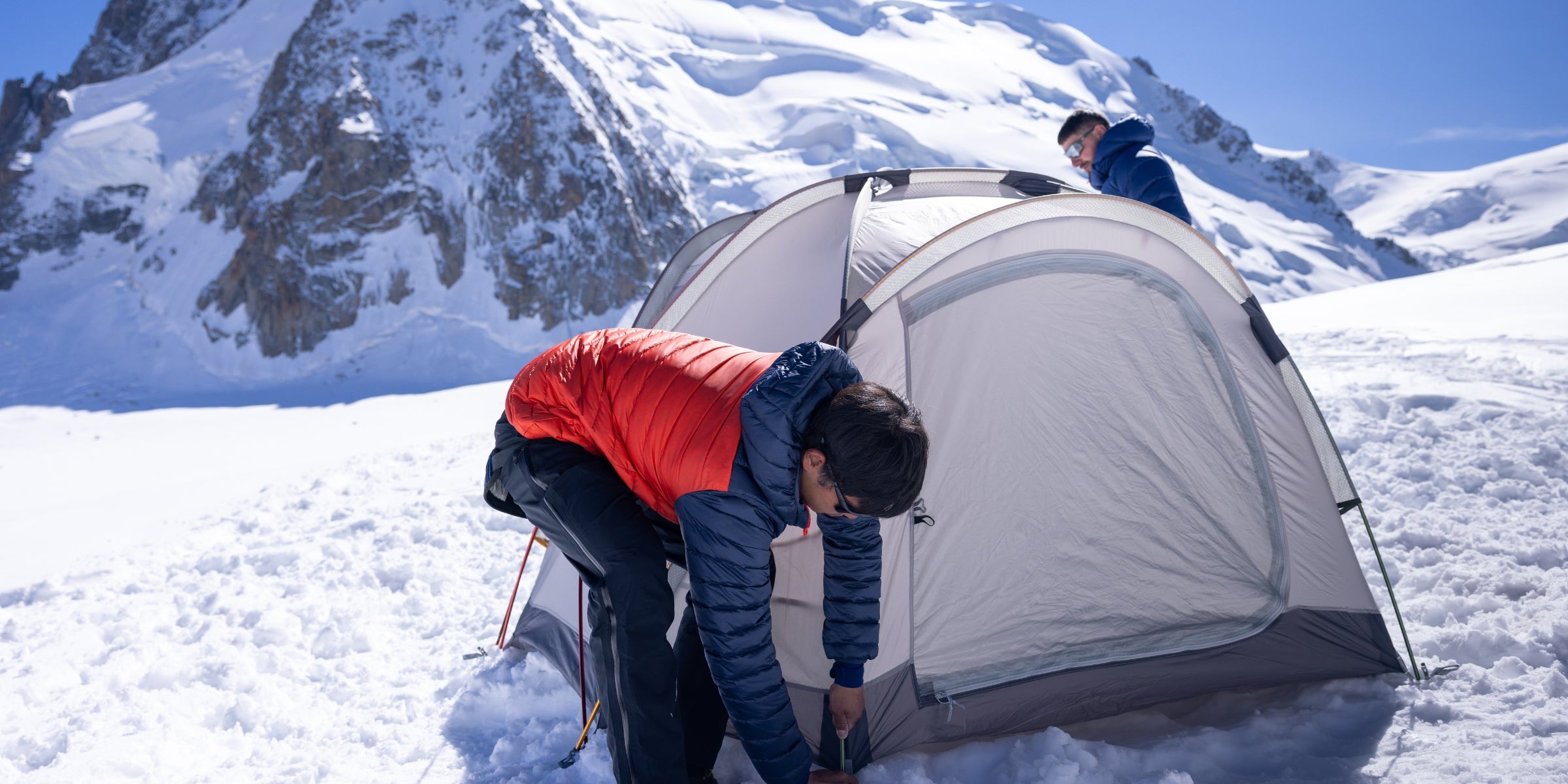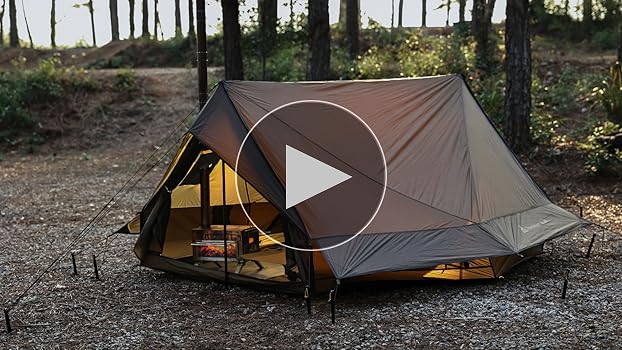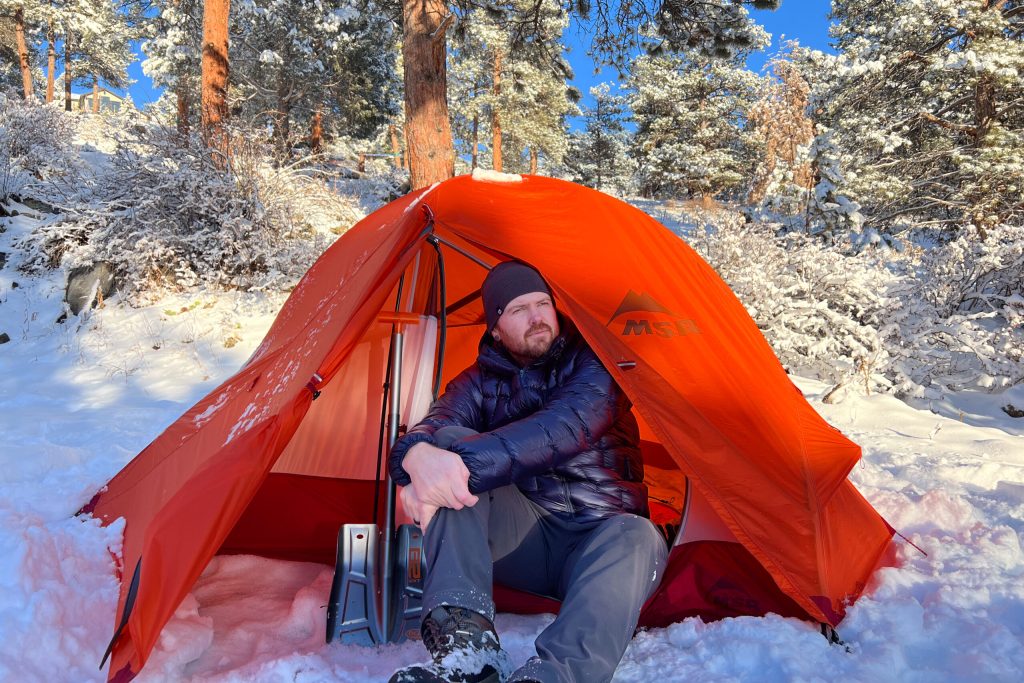Are you planning a winter camping trip and wondering if you really need a 4 season tent? Choosing the right shelter can make or break your experience in the cold.
You might think any tent will do, but winter conditions can be tough on both you and your gear. This article will help you understand what a 4 season tent offers, why it might be essential, and how to decide if it’s the right choice for your adventure.
Keep reading to make sure you stay warm, safe, and comfortable when the temperature drops.

Credit: us.alpkit.com
Winter Camping Basics
Winter camping means staying outside in cold weather. It needs more planning than summer camping.
You must prepare for snow, ice, and low temperatures. Using the right gear keeps you safe and warm.
Key Challenges Of Cold Weather
Cold weather brings many problems for campers. Staying warm and dry is the biggest challenge.
Frostbite and hypothermia are risks if you do not dress properly. Snow and wind can also make camping hard.
- Keeping your body heat inside the tent
- Preventing moisture buildup inside the tent
- Dealing with strong wind and heavy snow
- Managing frozen water and ice around the campsite
- Choosing the right clothing and sleeping gear
Types Of Winter Camping
Winter camping has different styles. Each style needs different gear and skills.
You can camp in a tent, snow shelter, or cabin. The choice depends on how cold it is and your experience.
- Tent Camping:Use a strong four-season tent for bad weather.
- Snow Shelters:Build igloos or quinzee snow caves to stay warm.
- Cabin Camping:Use cabins or huts for more protection in cold areas.
- Winter Backpacking:Carry light gear for hiking and camping in snow.
Tent Categories Explained
Tents come in different types for camping in various weather. Choosing the right tent helps keep you safe and comfortable.
Two common tent categories are 3 season and 4 season tents. They serve different needs depending on the weather.
What Makes A 4 Season Tent
A 4 season tent is built to handle tough weather. It works well in snow, strong wind, and cold temperatures.
These tents have stronger poles and thicker fabric. They keep snow out and trap heat inside to keep you warm.
- Durable poles for heavy snow and wind
- Thicker, waterproof fabric
- Less mesh to reduce cold air
- Steep walls to prevent snow buildup
- Extra guy lines for stability
Differences Between 3 And 4 Season Tents
3 season tents are for spring, summer, and fall camping. They focus on ventilation and light weight.
4 season tents are heavier and stronger. They protect better against winter weather but can feel warmer inside.
| Feature | 3 Season Tent | 4 Season Tent |
|---|---|---|
| Weight | Lighter for easy carrying | Heavier for durability |
| Ventilation | More mesh for airflow | Less mesh to keep warmth |
| Weather Protection | Good for rain and mild wind | Strong against snow and strong wind |
| Fabric Thickness | Thinner for breathability | Thicker for insulation |
| Pole Strength | Standard poles | Reinforced poles |
Benefits Of 4 Season Tents
Camping in winter requires special gear to stay safe and warm. A 4 season tent is designed for tough weather. It offers better protection than regular tents.
These tents help campers face cold, wind, and snow. They keep you comfortable and secure in harsh winter conditions.
Wind And Snow Resistance
4 season tents have strong frames to hold up against strong winds. Their shape and materials stop snow from piling up on top.
They use heavy-duty poles and tight fabric to prevent wind from breaking the tent. This keeps you safe during storms.
- Sturdy poles resist bending or breaking
- Sloped design helps snow slide off
- Tight seams stop wind and snow from entering
Durability In Harsh Conditions
These tents are built to last in cold and wet weather. They use tough fabrics that do not tear easily.
Waterproof coatings keep moisture out. The zippers and seams are strong to handle rough use.
- Ripstop fabric prevents rips and tears
- Waterproof layers block rain and snow
- Reinforced zippers and seams add strength
Thermal Insulation Features
4 season tents help keep heat inside. They have materials that slow down heat loss to cold air outside.
Some tents have extra layers or vents that you can adjust to control airflow and keep warm air in.
- Thicker fabric reduces heat loss
- Adjustable vents help manage moisture and warmth
- Design limits cold drafts inside the tent
When 4 Season Tents Are Essential
Winter camping can be tough without the right gear. A 4 season tent offers extra protection in harsh conditions.
These tents are built to handle snow, wind, and cold. They help keep you safe and warm.
Extreme Weather Scenarios
Strong winds and heavy snow can damage regular tents. A 4 season tent has stronger poles and fabric.
It stops snow from piling up and holds up in storms. This makes it safer for you during bad weather.
- Resists strong wind gusts
- Prevents snow build-up
- Offers better insulation
High Altitude Camping
At high altitudes, weather changes fast. Temperatures drop and wind speeds rise.
4 season tents are made for these places. They keep campers warm and protected from the cold air.
- Strong frame for heavy snow
- Less wind penetration
- Helps retain body heat
Extended Winter Trips
Long trips in winter need reliable shelter. A 4 season tent is built to last through many nights.
It protects against cold, moisture, and wind all day and night. This makes long stays safer and more comfortable.
- Durable materials for long use
- Better weather sealing
- More room for gear and movement
Alternatives To 4 Season Tents
Winter camping often requires strong tents that handle snow and wind. Four season tents are designed for this. But they can be heavy and costly. Some campers use other options that work well in cold weather.
These alternatives can keep you safe and warm. They may need some extra care or gear. Let’s look at using three season tents with changes and other shelter types like bivy sacks and snow shelters.
Using 3 Season Tents With Modifications
Three season tents are lighter and cheaper than four season tents. You can use them in winter by making a few changes. Adding a sturdy footprint helps protect the tent floor from ice and rocks.
Using extra guy lines and strong stakes helps the tent stay stable in wind. You can also add a tarp above the tent for more rain and snow protection. Insulating the inside with a foam pad keeps heat inside better.
- Use a durable footprint or groundsheet
- Add extra guy lines for wind stability
- Place a tarp over the tent for extra cover
- Use an insulating sleeping pad inside
- Clear snow away before setting the tent
Bivy Sacks And Snow Shelters
Bivy sacks are small, lightweight shelters that cover your sleeping bag. They are easy to carry and can work well in winter with good insulation. They block wind and keep moisture out.
Snow shelters include igloos or quinzhees made by piling and shaping snow. They protect from wind and trap warm air inside. Building a snow shelter takes time but can be very effective in heavy snow.
- Bivy sacks are compact and block wind
- Use a warm sleeping bag inside a bivy
- Snow shelters need snow and skill to build
- They trap body heat and block cold air
- Both are good lightweight alternatives

Credit: alpkit.com
Selecting The Right Tent For Winter
Winter camping needs special gear to stay safe and warm. A tent is the main shelter from cold wind and snow.
Choosing the right tent can make your winter trip more comfortable. Not all tents work well in cold weather.
Key Features To Consider
Look for tents that block wind and keep snow out. Strong poles and durable fabric help the tent last in winter storms.
Good ventilation is also important to prevent ice inside. Make sure the tent has vents that can open and close easily.
- Four-season rating for harsh weather
- Sturdy poles that resist wind
- Waterproof and snow-resistant fabric
- Ventilation options to reduce condensation
Budget Vs Performance
Winter tents often cost more than summer tents. Higher price usually means better materials and durability.
If you camp in mild winter areas, a less expensive tent might work. For harsh conditions, spend more for safety.
- Cheaper tents may lack strong wind resistance
- Expensive tents use better fabrics and poles
- Balance cost with where and how often you camp
- Consider renting a high-performance tent if needed
Weight And Portability
Winter tents are usually heavier due to strong poles and thick fabric. Carrying weight matters if hiking far.
Look for tents that pack small but still protect you well. Ultralight tents may not hold up in strong winds.
- Heavier tents offer more protection
- Light tents are easier to carry but less durable
- Choose weight based on your travel style
- Check packed size to fit your backpack
Setting Up Your Tent In Winter
Setting up a tent in winter needs careful planning. Cold and snow make it harder to camp comfortably.
Choosing the right place and securing your tent well keeps you safe and warm during winter camping.
Site Selection Tips
Pick a spot that is flat and protected from wind. Avoid areas under heavy snow loads or near dead trees.
Look for natural windbreaks like bushes or hills. Clear snow down to firm ground if possible.
- Find a flat area with no ice patches
- Avoid spots under large branches or heavy snow
- Use natural windbreaks like rocks or shrubs
- Remove snow to create a solid base
Anchoring In Snow And Ice
Snow and ice make it hard to use regular stakes. Use special snow anchors or bury your stakes sideways.
Tie guylines tightly and check them often. Use heavy rocks or logs if stakes do not hold well.
- Use snow stakes or deadman anchors
- Bury stakes horizontally in snow for better grip
- Tighten guylines and check frequently
- Secure lines with rocks or logs if needed
Ventilation Strategies
Good airflow prevents moisture inside the tent. Open vents or slightly unzip doors to let air move.
Check for ice buildup on tent fabric. Clear snow from vents to keep fresh air coming.
- Keep vents open to reduce condensation
- Leave a small gap in the door for airflow
- Remove snow from vents regularly
- Use breathable tent fabric if possible

Credit: www.amazon.com
Maintaining Your Tent In Cold Weather
Keeping your tent in good shape during winter is very important. Cold weather can damage tents if you do not care for them well.
Proper maintenance helps your tent last longer and stay safe in harsh conditions. Follow simple tips to protect your tent in cold weather.
Preventing Ice Build-up
Ice can form on your tent walls and zippers in winter. This can make your tent weak and hard to use. Avoid ice build-up to keep your tent strong.
Ventilate your tent well to reduce moisture inside. Use a small stove or heater safely to lower humidity. Wipe off any ice or frost as soon as you see it.
- Keep vents open for air flow
- Remove snow from tent roof regularly
- Use a brush or cloth to clear ice gently
- Avoid touching frozen zippers roughly
Storage And Care After Use
After winter camping, your tent needs good care. Storing a wet or dirty tent can cause mold and damage fabric.
Clean your tent with cold water and mild soap. Dry it completely before packing. Store the tent in a cool, dry place away from sunlight.
- Shake off snow and dirt outside
- Use a soft sponge and mild soap for cleaning
- Hang tent to dry fully before storage
- Keep tent in a breathable bag or container
Frequently Asked Questions
What Is A 4 Season Tent?
A 4 season tent is designed for harsh weather. It withstands snow, strong winds, and cold temperatures. Its robust structure provides durability and protection, making it ideal for winter camping. These tents often have fewer mesh panels to retain warmth and are heavier due to sturdier materials.
Can A 3 Season Tent Work In Winter?
A 3 season tent is not ideal for winter conditions. It lacks the insulation and structural support needed for snow and strong winds. While it may work in mild conditions, it won’t provide adequate protection in harsher winter environments. A 4 season tent is recommended for winter camping.
Why Choose A 4 Season Tent For Winter Camping?
A 4 season tent offers superior protection in winter. It is built to withstand snow loads and strong winds. Its design helps retain heat, ensuring a warmer camping experience. This tent type provides safety and comfort, essential for challenging winter conditions.
How Does A 4 Season Tent Differ From Others?
A 4 season tent has a sturdier frame and less mesh. It is built for extreme weather, unlike 3 season tents. Its design is more robust, preventing snow accumulation. The materials are heavier and more durable, offering greater protection against cold and wind.
Conclusion
A 4 season tent offers strong protection against cold and wind. It keeps you warm and safe during harsh winter nights. Regular tents may not handle heavy snow or strong gusts well. Choosing the right tent depends on your camping style and weather conditions.
For serious winter trips, a 4 season tent is a smart choice. It makes your outdoor experience more comfortable and secure. Stay prepared, stay warm, and enjoy your winter adventure.

